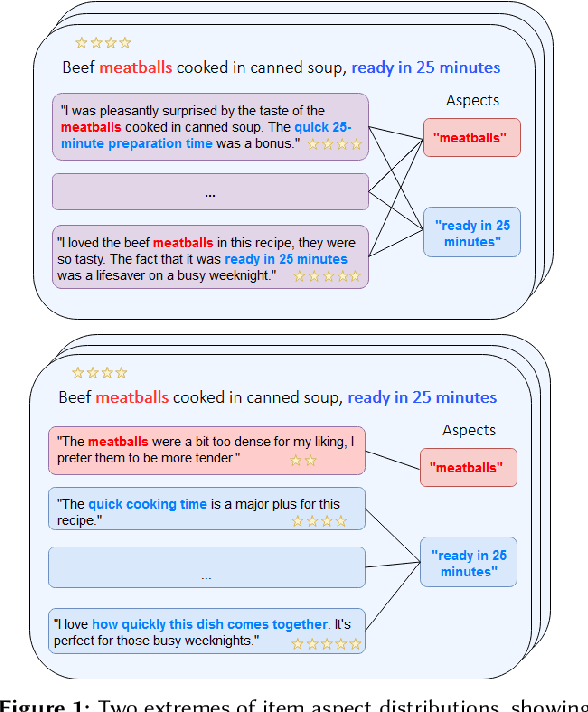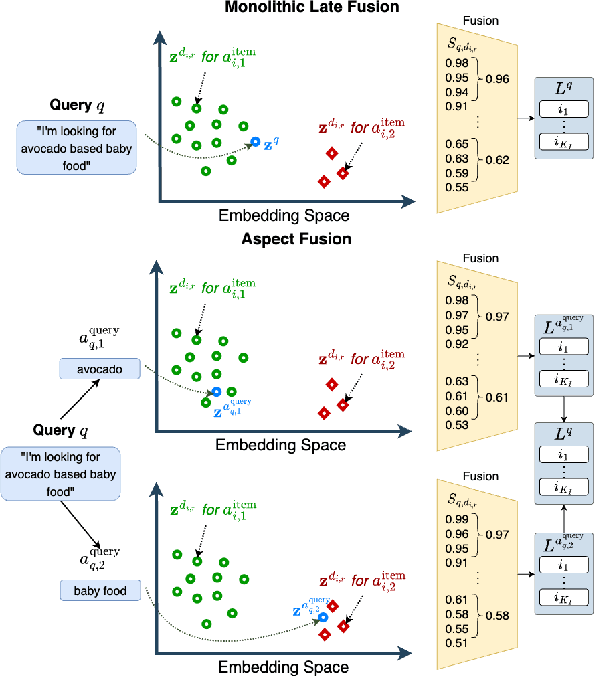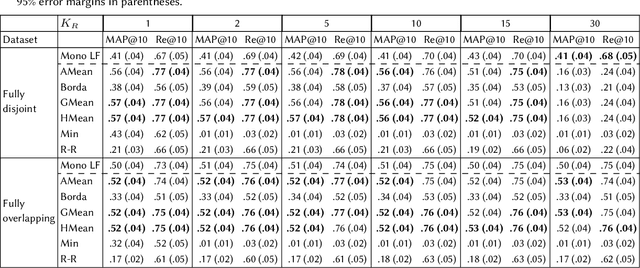George Saad
Elaborative Subtopic Query Reformulation for Broad and Indirect Queries in Travel Destination Recommendation
Oct 02, 2024Abstract:In Query-driven Travel Recommender Systems (RSs), it is crucial to understand the user intent behind challenging natural language(NL) destination queries such as the broadly worded "youth-friendly activities" or the indirect description "a high school graduation trip". Such queries are challenging due to the wide scope and subtlety of potential user intents that confound the ability of retrieval methods to infer relevant destinations from available textual descriptions such as WikiVoyage. While query reformulation (QR) has proven effective in enhancing retrieval by addressing user intent, existing QR methods tend to focus only on expanding the range of potentially matching query subtopics (breadth) or elaborating on the potential meaning of a query (depth), but not both. In this paper, we introduce Elaborative Subtopic Query Reformulation (EQR), a large language model-based QR method that combines both breadth and depth by generating potential query subtopics with information-rich elaborations. We also release TravelDest, a novel dataset for query-driven travel destination RSs. Experiments on TravelDest show that EQR achieves significant improvements in recall and precision over existing state-of-the-art QR methods.
Multi-Aspect Reviewed-Item Retrieval via LLM Query Decomposition and Aspect Fusion
Aug 01, 2024



Abstract:While user-generated product reviews often contain large quantities of information, their utility in addressing natural language product queries has been limited, with a key challenge being the need to aggregate information from multiple low-level sources (reviews) to a higher item level during retrieval. Existing methods for reviewed-item retrieval (RIR) typically take a late fusion (LF) approach which computes query-item scores by simply averaging the top-K query-review similarity scores for an item. However, we demonstrate that for multi-aspect queries and multi-aspect items, LF is highly sensitive to the distribution of aspects covered by reviews in terms of aspect frequency and the degree of aspect separation across reviews. To address these LF failures, we propose several novel aspect fusion (AF) strategies which include Large Language Model (LLM) query extraction and generative reranking. Our experiments show that for imbalanced review corpora, AF can improve over LF by a MAP@10 increase from 0.36 to 0.52, while achieving equivalent performance for balanced review corpora.
 Add to Chrome
Add to Chrome Add to Firefox
Add to Firefox Add to Edge
Add to Edge